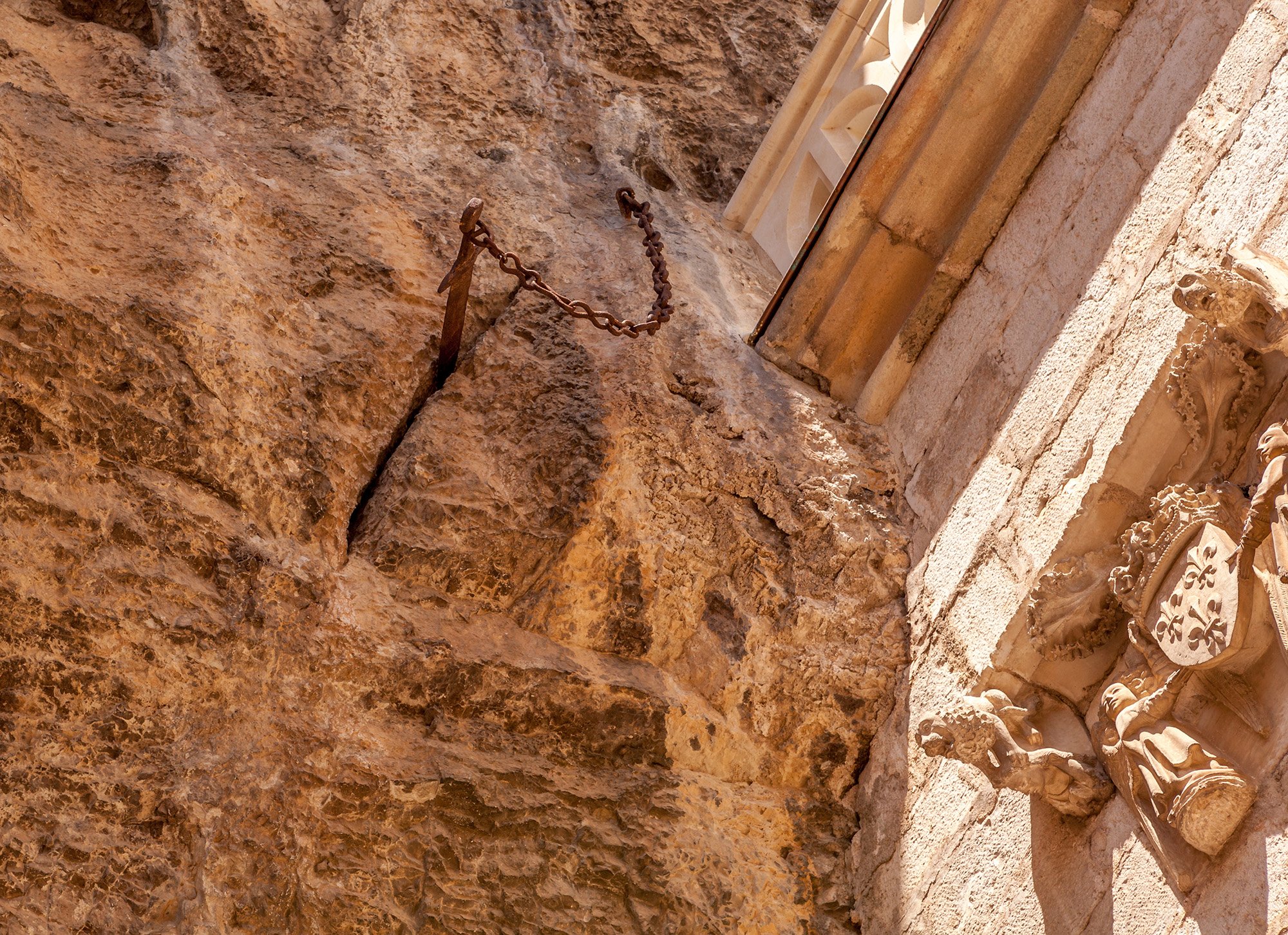
The French Excalibur, a mythical sword known as Durandal, has gone missing. Legend has it that some 1,300 years ago, Roland, a knight of Charlemagne, hurled the blade so hard that it flew for over 100 miles before piercing a rock 32 feet above the ground.
There, in the medieval village of Rocamadour in southwestern France, it has stayed (or at least a replica has) ever since—until now.
The tale of the indestructible blade became famous in the 11th- or 12th-century, thanks to the epic French poem “The Song of Roland.” Durandal was a gift from God, and so powerful that Charlemagne tasked Roland with destroying it rather than let it fall into the wrong hands. Roland died fighting Muslim forces in the Battle of Roncevaux Pass in 778 A.D., heroically—and miraculously—lodging the blade into the rock with his dying breath.
Legends aside, a British historian named Richard Barber alleged that the physical sword’s origins trace to the 1780s, when locals installed it in a bid to draw tourists.
The Durandal sword in France. Photo: Shutterstock.
Though Durandal doesn’t have the cachet of the U.K.’s Excalibur, the idea caught on. Everyone is quick to admit the sword isn’t actually from Charlemagne’s day, but it has become a must-see sight for visitors to the small village with its picturesque cliffside buildings.
Though it is “a copy of a copy of a copy” the mayor of Rocamadour, Dominique Lenfant, told the New York Times, “the important thing to understand, is that it is an emblem of our heritage in Rocamadour, and that it is no longer there.”
Word of the sword’s disappearance was first reported in the French newspaper La Dépêche du Midi. It vanished the night of June 21, and police promptly began investigating.
View over Medieval town of Rocamadour, Midi-Pyrenees, France. Photo by Sergi Reboredo/VWPics/Universal Images Group via Getty Images.
The motives behind the theft remain unknown. It could be a prank. Or it could be an act of the far right, who see Charlemagne’s battle against the Muslims as the perfect symbol for the current nationalism movement vilifying Muslim immigrants.
Fortunately, it seems unlikely Rocamadour will have to survive very long without its most famous attraction. Even if the stolen blade isn’t promptly recovered, Lenfant noted that four local blacksmiths have all offered to forge a new Durandal to restore the beloved sword in the stone.